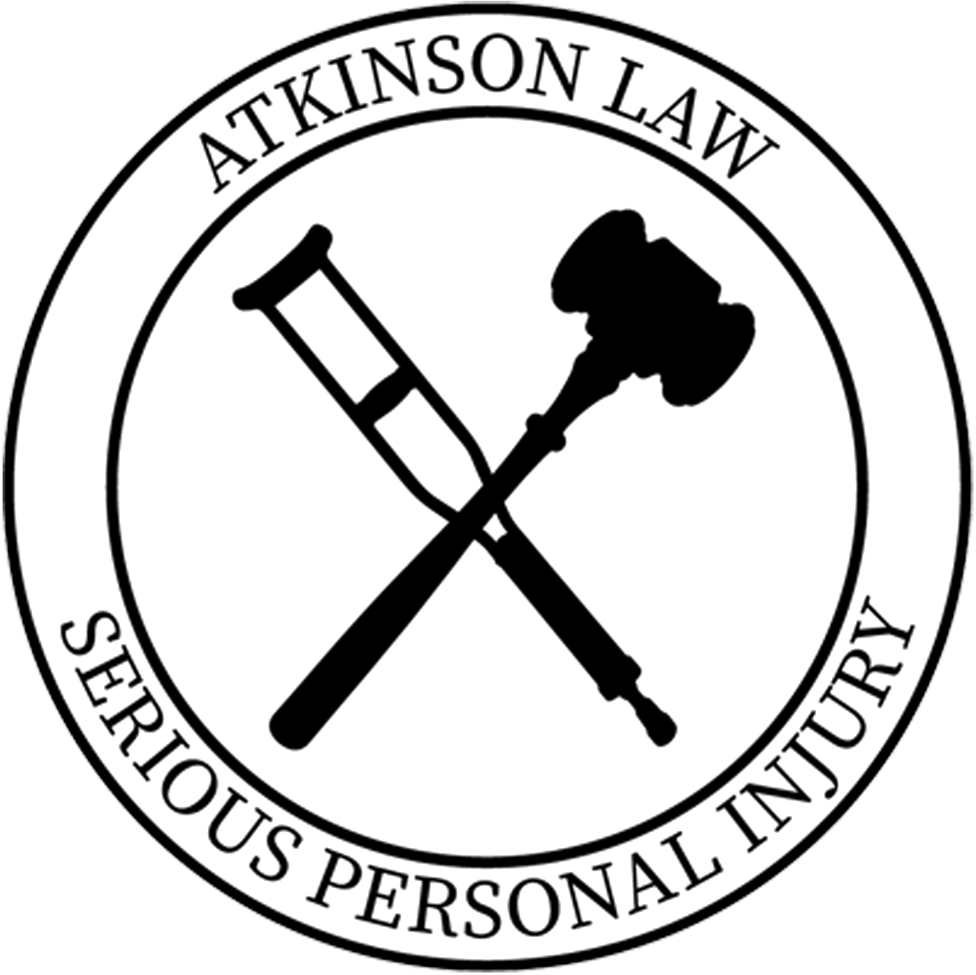
According to the contributory negligence rule, the injured victim can only recover compensation if the defendant is 100% at fault for the accident. Therefore, if you are even 1% responsible for the incident, you are not eligible to claim damages. Virginia and a few other states follow this system.
With over 15 years of experience as a licensed attorney, I, Ed Atkinson, have handled many different types of personal injury claims. I can review the details of your case in a free consultation and determine how contributory negligence affects your injury claim. Let me serve as your Norfolk personal injury lawyer and protect your rights. Call today to schedule a case review.
What Is Contributory Negligence?
Contributory negligence is a legal term for a situation in which an individual contributes to their own injury or damages. If you are partially at fault for the accident, you no longer have the right to recover your losses.
The system operates under a “complete bar rule,” so if a plaintiff is even slightly at fault for their own injury, they are barred from recovering any compensation, regardless of the defendant’s level of negligence. This strict standard can lead to unjust outcomes, particularly in cases where the plaintiff’s contribution to the injury is very small compared to the defendant’s negligence.
The majority of states don’t follow contributory negligence because it can result in harsh outcomes for plaintiffs. In fact, currently, only four states follow the comparative negligence rule: Virginia, Alabama, Maryland, and North Carolina.
The Burden of Proof
The plaintiff (who is the person bringing the case) must prove that the defendant’s negligence directly caused their injuries. However, the defendant (the person being sued) can argue that the plaintiff’s actions also contributed to the injury. This leads to a key aspect of Virginia law: the burden of proof.
Under Virginia’s negligence rule, if the plaintiff is found even slightly at fault for their injuries, they can’t receive any compensation. This places a heavy burden on the plaintiff to demonstrate that the other party is fully responsible and underscores the importance of professional legal support.
Get a free legal consultation
CALL 757-648-8579Understanding Contributory Negligence in Virginia
If you were injured and your actions contributed to the incident, you don’t qualify for any compensation, as per Code of Virginia § 8.01-34. As an injured victim, you can claim damages only if the defendant is fully responsible for what happened.
There are exceptions to this rule, however. Under Code of Virginia § 8.01-58, if an employee of a common carrier (like a train or bus company) gets hurt or dies because of their job and is partly at fault, they can still get a monetary award.
In this case, the amount of money they get will be lessened by the jury’s decision on how much they were at fault. However, if the company breaks any safety rules that lead to injury or death, the employee won’t be considered at fault at all.
Contributory Negligence Impacts the Injured Victim’s Compensation
Contributory negligence determines whether the injured victims receive damages, and the system adopts an all-or-nothing perspective. If you are found to have contributed to your own injury in any way, even just a little bit, you can no longer recover your accident-related losses.
For example, if you were involved in a collision with a drunk driver while you were eating and driving, you will likely be considered partially responsible for the crash. Even if the other driver’s intoxication was the main cause of the accident, your distraction could be seen as contributing to the overall negligence.
Contact our personal injury lawyers today
GET FREE EVALUATIONInsurance Companies Will Try to Use Contributory Negligence Against You
Insurance companies are not your friends; these are profit-driven entities that prioritize their bottom line over your rightful compensation. Adjusters are trained to use a wide range of strategies to minimize the value of your claim or refuse it altogether.
Claim adjusters will try to use contributory negligence against you to reduce the amount they have to pay. If they can prove that you were even 1% at fault for your injuries, they will argue that you don’t deserve any money.
For example, if you slipped and fell in a store while texting on your phone, the insurance company could claim that your distraction contributed to the accident. They would argue that if you had been paying full attention to your surroundings, you could have avoided the danger.
As an experienced personal injury lawyer, I am aware of this tactic and many others used by claim adjusters. Over the years, I have built effective strategies to counter the insurance company’s attempt to devalue your claim. You can trust me to protect your rights.
Strategies for Dealing With Contributory Negligence
What you do immediately after the accident will impact how much your personal injury case is worth. To protect your right to receive a fair settlement, talk to an experienced personal injury attorney as soon as possible.
The following strategies will increase the chances of a successful outcome in your case:
- Gather strong evidence: This might include eyewitness testimonies, photographs of the accident scene, and expert opinions. As your attorney, I will collect all the important evidence that strengthens your claim.
- Maintain documentation of all the correspondence: Detailed records of the accident, including photographs and medical reports, can help deny allegations of contributory negligence and establish the defendant’s liability.
- Negotiate during settlement discussions: As your lawyer at Atkinson Law, I will negotiate with the insurance company or the other party for the maximum settlement amount. Having an experienced lawyer handle negotiations on your behalf takes away the stress of dealing with adjusters or the defendant directly.
- Seek experienced legal representation: You need an experienced personal injury lawyer who understands the nuances of contributory negligence laws and knows how to navigate them effectively. They can gather strong evidence, present compelling arguments, and anticipate legal strategies employed by the opposing party.
- Prepare for legal proceedings: A well-prepared attorney anticipates arguments from the opposing party and offers effective counter arguments. As your personal injury lawyer, I will help you prepare for legal proceedings so you can be confident that your voice is heard.
Call Atkinson Law for a Free Legal Consultation
Being involved in an accident can be a confusing experience. While taking legal action and fighting for the compensation you need for a better life may seem scary, working with an experienced personal injury lawyer will simplify the process.
You have nothing to lose by reaching out to me. I work on a contingency fee basis, so you only have to pay me if I win your case. Also, the initial consultation is free. Contact me today to learn more about how contributory negligence affects your case.
Call or text 757-648-8579 or complete a Free Case Evaluation form
CONTACT US TODAY
